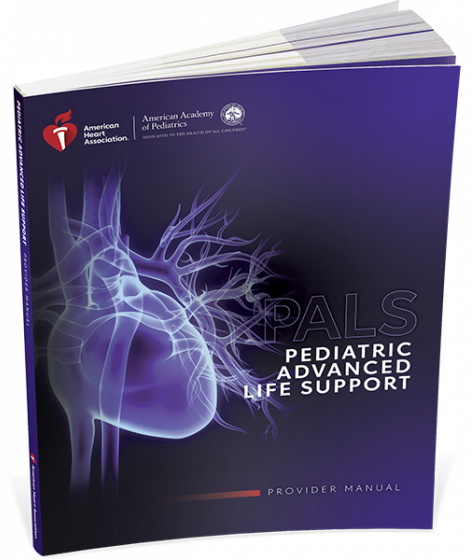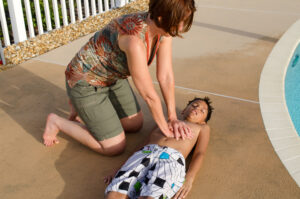PALS Classes in Houston: Pediatric Advanced Life Support You Can Trust
When a child’s condition changes in seconds, a prepared team makes all the difference.
At Health Street in Houston, our Pediatric Advanced Life Support (PALS) courses are designed to build calm, coordinated responses to pediatric emergencies—whether you work in the Texas Medical Center, a Katy urgent care, a Sugar Land surgery center, or on an EMS unit in The Woodlands.
We offer flexible schedules, dedicated parking, and Spanish-language support so you can certify without derailing your work week.
Our instructors are veteran clinicians and AHA-aligned educators who keep scenarios practical and Houston-real: asthma flares during peak allergy season, drownings from Gulf-area outings, and febrile seizures in busy EDs.
You’ll leave confident and ready to lead, not just pass a test.
FYI: September Only: Save $10 on ACLS or PALS In-Person Classes – Use Code “SAVE10SEPT”
(Valid for in-person classes only; payment required upfront. Excludes online/off-site courses. Promo ends September 30th)
What PALS Is—and Who in Houston Needs It
PALS (Pediatric Advanced Life Support) teaches systematic pediatric assessment, high-quality CPR, effective ventilation, rhythm recognition, vascular access strategies, shock management, and post-resuscitation care for infants and children.
It’s designed for nurses, physicians, paramedics, respiratory therapists, and advanced practice providers who may respond to pediatric codes or deterioration in emergency, critical care, perioperative, and prehospital settings.
Hospitals throughout the Houston area—Midtown to Memorial City, Clear Lake to Pasadena—often expect clinicians in pediatric-capable areas to maintain PALS.
If you’re moving into PICU, ED, transport, anesthesia, or rapid response roles, PALS is commonly required or strongly recommended.
If you’re in training or onboarding to a pediatric environment, taking PALS training early helps you contribute on day one.
How to Find PALS near me in Houston (and choose the right provider)
Search queries like PALS near me can return dozens of options. To choose the right course:
- Confirm AHA alignment. Look for AHA PALS or PALS AHA language, logo, and acceptance of AHA eCards by Houston employers.
- Prioritize realistic skills time. Scenario-heavy practice with feedback devices is what converts knowledge into muscle memory.
- Check logistics that matter. Free or validated parking near the Energy Corridor, evening/weekend classes, and fast certificate turnaround.
- Ask about blended vs. classroom. If your schedule is tight, consider blended learning with an online module followed by an in-person skills check; if you’re newer to pediatrics, a full classroom day may be better.
- Make rescheduling easy. Healthcare shifts change. Choose a partner with a transparent reschedule policy.
At Health Street, we keep class sizes small, run weeknight and Saturday options, and offer employer group bookings onsite in Heights, Memorial City, and beyond.
What to Expect in PALS Training (AHA PALS)
Our Houston PALS courses focus on team roles and rapid clinical reasoning.
Expect:
- Airway & breathing mastery: Bag-mask ventilation for infants and children, airway adjuncts, and when to escalate.
- Circulation & rhythms: Brady/tachy algorithms, synchronized cardioversion scenarios, and shock recognition.
- Team dynamics: Closed-loop communication, role clarity, and code leader skills you can use on your next shift.
- Houston-relevant cases: Asthma, drowning, anaphylaxis at school events, and fever-related seizures.
You’ll also receive guidance on study resources and how to use your AHA PALS student materials efficiently so you can spend more time practicing and less time guessing what matters.
Prepare faster with the AHA PALS pretest
Before class, complete the AHA PALS pretest. (The student must complete the Pre-Course Self-Assessment and achieve a score of at least 70% before taking the PALS Course.)
It identifies gaps so you can focus your review. Skim algorithms, watch the pediatric assessment videos, and arrive ready to practice.
If it’s your first time, consider an extra hour on rhythms and shock types—our instructors will meet you where you are.
Exactly What to Bring and How the Day Flows
Below is a quick look at what to bring and how the in-person portion typically runs in our Houston classrooms near the Energy Corridor.
| Item / Segment | Why It Matters |
| Government ID & employer badge
|
Confirms identity and helps us tailor scenarios to your clinical area. |
| Current BLS (recommended)
|
Ensures compressions and ventilation are second nature so you can focus on PALS algorithms. |
| Printed or digital student materials
|
Follow along, mark key pages for rhythm algorithms and pediatric assessment. |
| Comfortable, closed-toe shoes
|
You’ll be on your feet practicing compressions and team roles. |
| Hands-on stations & scenarios
|
Build repetition—airway, rhythm management, teamwork—with instructor coaching. |
| Skills check & megacode
|
Demonstrate assessment, leadership, and interventions in realistic pediatric cases. |
| Exam | The PALS exam consists of 50 multiple-choice questions. Our expert CPROLOGISTs guide you throughout the course, ensuring you have the knowledge and confidence to succeed on the exam. |
Houston Mini Case Study: Pediatric Asthma in the Heights ER
Setting: A busy community emergency department serving the Heights and nearby neighborhoods.
Patient: 7-year-old with a history of asthma and seasonal allergies, arriving during spring pollen spikes.
Presentation: Tachypneic, intercostal retractions, speaking in short phrases, accessory muscle use; pulse ox drifting down despite inhaled bronchodilators at home.
Your PALS approach:
- Initial impression & ABCDE assessment. Recognize increased work of breathing; move to oxygen, nebulized bronchodilator, and consider adjuncts.
- Support ventilation early. Prepare for bag-mask ventilation, monitor effectiveness with chest rise and capnography if available.
- Escalate care. Evaluate for impending respiratory failure. Coordinate with RT and assign roles (meds, airway, monitor, documentation).
- Team dynamics. The charge nurse leads, assigning push-dose tasks. Closed-loop communication keeps everyone synchronized.
- Post-stabilization. Reassess, plan disposition, and debrief for system improvements (e.g., triage asthma pathway).
This is the type of “Houston-real” scenario your class will rehearse until it feels automatic.
Team Readiness: Where PALS fits with ACLS and BLS, and ACLS and PALS certification
PALS does not replace adult algorithms; many Houston facilities require BLS (Basic Life Support) for all clinical staff and ACLS (Advanced Cardiovascular Life Support) for those caring for adults.
Interdisciplinary teams often carry ACLS and BLS alongside PALS so they’re ready for both adult and pediatric codes.
Some roles—transport, ED, anesthesia—may expect ACLS and PALS certification so you can pivot smoothly between patient populations.
If you need ACLS as well, see our schedule (link below) or ask about bundle pricing for multi-course enrollments.
Scheduling, Parking & Spanish Options near the Energy Corridor
- Flexible scheduling. Afternoon and Saturday PALS options; add-on skills checks for those completing the online component.
- Parking made simple. Free parking at our classrooms near the Energy Corridor and Memorial City; transit-friendly Midtown site.
- Spanish support. Student materials available in Spanish were provided by AHA. However, the advanced classes are in English. We do offer basic classes in Spanish.
- Group bookings. We train on-site for hospital units and large practices across Katy, Sugar Land, Clear Lake, Pasadena, and The Woodlands.
Enroll in a PALS class near me: Simple steps & next actions
- Pick your date: Visit our Class Schedule for open seats this month.
- Complete the pre-course: Do the AHA PALS precourse requirements and review your student materials.
- Attend and certify: Bring ID and arrive 10 minutes early; skills checks and megacode occur same day.
- Get your eCard fast: Most learners receive the AHA eCard the same day your skills are verified (check employer acceptance).
Useful links:
- Internal: BLS Certification, Group Training. Learn more by clicking here
- Read Commonly Asked Questions By Clicking here
FAQs for Houston PALS Students
Q1. Is PALS only for pediatric hospitals?
No. Any Houston setting that may treat children—EDs, urgent care, transport, PACU, procedural suites—benefits from PALS-trained staff.
Q2. Do I need BLS before PALS?
Current BLS is strongly recommended, so compressions/ventilations are automatic, and you can focus on pediatric algorithms. Many Houston employers require BLS regardless of role. Health Street also offers a PALS and BLS combo class or ACLS/BLS combo classes. Ask for more information!
Q3. How long is PALS valid?
Typically, two years in the U.S., but always confirm renewal cycles with your employer and the American Heart Association.
Q4. Do Houston employers accept AHA eCards?
Most do. We issue AHA eCards; bring your employer’s policy if you’re unsure, so we can help you verify acceptance.
Q5. Can I reschedule if my shift changes?
Yes—healthcare happens. We offer fair rescheduling options; see our policy on the booking page.
Q6. What is ACLS? ACLS stands for adult advanced cardiovascular life support for cardiac/respiratory emergencies in adults. If you also care for adults, consider adding ACLS to your credentials.
Q7. What does ACLS stand for?
It stands for Advanced Cardiovascular Life Support. Our ACLS courses in Houston pair well with PALS if your role spans adult and pediatric patients.
Q8. How long is ACLS good for?
Typically, two years in the U.S., but always confirm your organization’s policy and current American Heart Association guidance.
September Only: Save $10 on ACLS or PALS In-Person Classes – Use Code “SAVE10SEPT”
(Valid for in-person classes only; payment required upfront. Excludes online/off-site courses. Promo ends September 30th)
Ready to enroll?
Call (281) 920-9490 or email info@cprologist.com, or tap Book Your PALS Seat to secure your date: Book Now
Evening & weekend options, Free/validated parking.
Why Choose Us in Houston
- Small classes with veteran AHA-aligned instructors
- Convenient location with easy parking
- Fast AHA eCards and responsive support
Health Street CPRologists • 1710 S. Dairy Ashford Rd., Suite #207, Houston, Texas 77077 • (281) 920-9490






